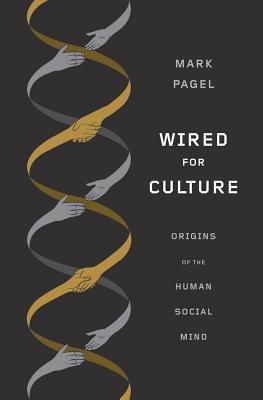
The Naked Ape
Book Description
Beneath the surface of civilization lies a primal truth waiting to be uncovered. Desmond Morris strips away the layers of human behavior, revealing the raw instincts that drive us. From the intimate rituals of love to the savage battles for dominance, every page pulses with the heartbeat of our shared animal heritage. Through an electrifying blend of sociology and biology, this groundbreaking exploration challenges perceptions, delving deep into what it means to be human. Are we merely sophisticated apes, or is there something more profound lurking beneath our polished exteriors?
Quick Book Summary
"The Naked Ape" by Desmond Morris offers a provocative look at human beings through zoological eyes, positing that much of our complex social behavior is rooted in our animal ancestry. Stripping away the veneer of civilization, Morris explores aspects of sex, status, grooming, feeding, aggression, and child-rearing to reveal how evolutionary instincts shape our modern lives. He compares humans to other primates, emphasizing our similarities and highlighting how the unique human condition has been shaped by our evolutionary history as hunter-gatherers. Rather than viewing ourselves as fundamentally different, the book encourages reflection on what it truly means to be human and how much our biological heritage still governs everyday actions and societal norms.
Summary of Key Ideas
Table of Contents
Human Social and Sexual Behavior as Animal Instincts
Desmond Morris begins by framing humans as one species among the primates, famously dubbing us "the naked ape" for our relative lack of body hair. By examining our anatomy and social traits, Morris argues that many human behaviors, especially those involving sex and status, are best understood not as unique achievements but as extensions or modifications of our animal instincts. He insists that to fully grasp ourselves, we must be willing to acknowledge and analyze our biological drives alongside our cultural developments.
Aggression and Dominance Hierarchies
The book delves deeply into human social and sexual behavior, drawing parallels to other apes yet highlighting what makes us unique. Morris discusses courtship rituals, pair-bonding, and the frequency of sexual activity, viewing these as crucial for the maintenance of long-term relationships and the rearing of dependent offspring. He theorizes that our social structures and intimate relationships stem from evolutionary pressures for survival, reproductive success, and the formation of stable family units.
The Impact of Evolutionary History on Modern Life
Morris also explores aggression and the formation of dominance hierarchies, underlining how early human life as hunters, rather than gatherers, led to evolved patterns of competition and cooperation. The need for teamwork in the hunt and defense of territory produced complex group dynamics, shaping our social instincts, the handling of conflict, and the development of leadership. He notes that many modern conflicts—even in boardrooms—echo these primal contests for status and resources.
The Role of Child-rearing and Pair-bonding
Child-rearing and the need for extended parental care are highlighted as defining features of humanity, contributing to the evolution of close pair-bonding and cooperation within groups. Morris describes how human children, born particularly vulnerable, shaped our social evolution and promoted traits such as empathy, learning, and long-term bonding between mates. These evolutionary demands distinguish humans from even our nearest primate relatives and underpin the formation of complex societies.
Cultural Adaptations versus Biological Drives
Throughout, Morris questions the balance between cultural innovation and biological inheritance. He suggests that while human culture allows remarkable adaptation and progress, many of our conflicts, desires, and rituals are echoes of our evolutionary past. The book concludes with a call for greater self-understanding: only by accepting the animal within can we hope to resolve the contradictions between our instincts and the demands of modern civilization.
Download This Summary
Get a free PDF of this summary instantly — no email required.





